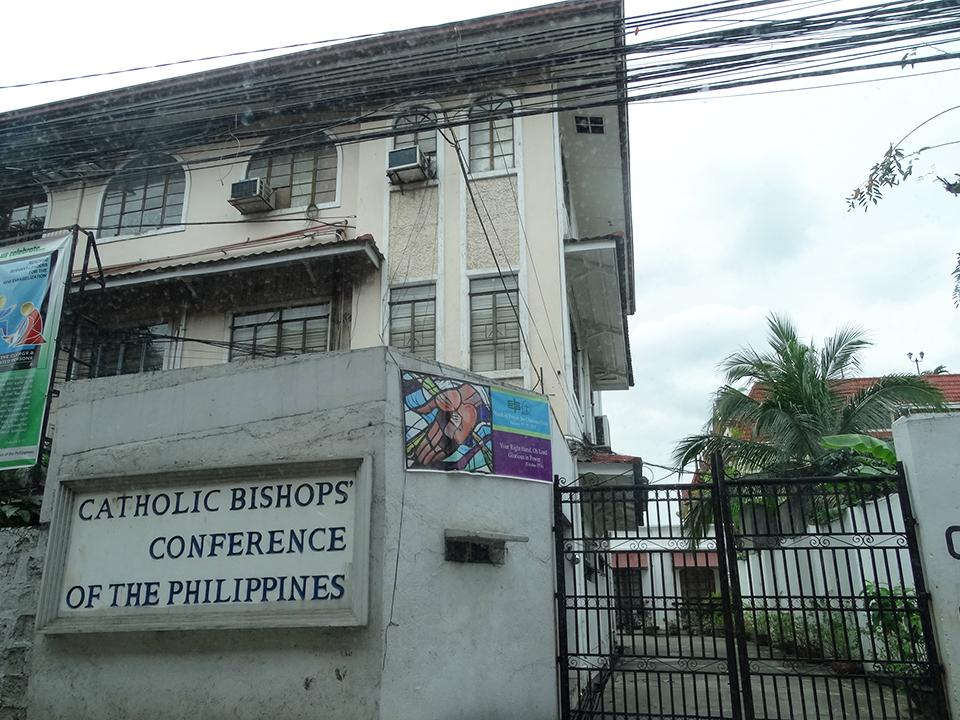CBCP: Commission not conference in NTF-ELCAC

The Catholic Bishops' Conference of the Philippines (CBCP) on Friday said that it was not the conference of Catholic leaders that engaged the National Task Force to End the Communist Armed Conflict.
In a statement, CBCP president Kalookan Bishop Pablo David said it was the Episcopal Commission on Public Affairs that is there as a private sector representative.
He said the episcopal commission would engage with the NTF-ELCAC to address some of the church’s concerns and to provide “moral-ethical approaches to dealing with the problem of insurgency”.
“It’s not exactly CBCP as a conference but the Episcopal Commission of Public Affairs that is there as a private sector representative,” David said.
“As such, this Commission has access to the NTF-ELCAC ExeCom and more opportunity to express the Church’s specific concerns, since its mandate is to act as a liaison of the CBCP to the public and private sectors and to advance some of the social concerns and issues of the Church,” he added.
On Thursday, the NTF-ELCAC said Bishop Reynaldo Evangelista and his alternate Father Jerome Secillano represented the CBCP in the anti-insurgency agency.
"We are really very glad that when we first approached the CBCP leadership, we were accepted warmly. Hindi po tayo nagkaroon ng problema [we didn't have any problem] with them. In fact, they readily accepted to cooperate with us," NTF-ELCAC executive director Undersecretary Ernesto Torres said in a briefing on Thursday afternoon.
"We are a very religious country, so if I’m not mistaken, more than 80% of our population is Catholic or Christian, so the organization could be felt down to the barangays and even sitios. So they are organized as such, so with them on our side, it would be a lot easier for us to disseminate, to cascade the information, the good news of the government to those living in far flung areas,” Torres added.
Torres said the NTF-ELCAC explained to the CBCP its role of harmonizing different efforts of the government and other partner stakeholders in ending local armed conflict in the country.
In his statement on Friday, David said the CBCP was looking to discuss the issue in the upcoming CBCP’s Permanent Council to come up with a “concrete resolution”.
“Can this Commission engage the said government body in a dialogue without having to join its ExeCom as member — i.e. as private sector representative? We hope to come up with some resolutions on this matter soon,” David said.
In April 2021, the CBCP President denounced red-tagging and fake news.
Meanwhile, Bayan Secretary General Renato Reyes Jr. reminded the CBCP of the limits of any engagement with the NTF-ELCAC.
"While we believe that the CBCP has by and large stood for basic human rights especially against red-tagging and extrajudicial killings, joining the NTF ELCAC sends the wrong message to the public," Reyes said in a statement.
"The CBCP may be used to deodorize the counter-insurgency task force amid a long list of abuses and violations attributed to it," he added.
He urged the CBCP to study the National Security Policy of the Marcos administration "where the policy of red-tagging is further entrenched and sham localized peace talks are upheld instead of serious peace negotiations that seek to address the roots of the armed conflict." —NB, GMA Integrated News




